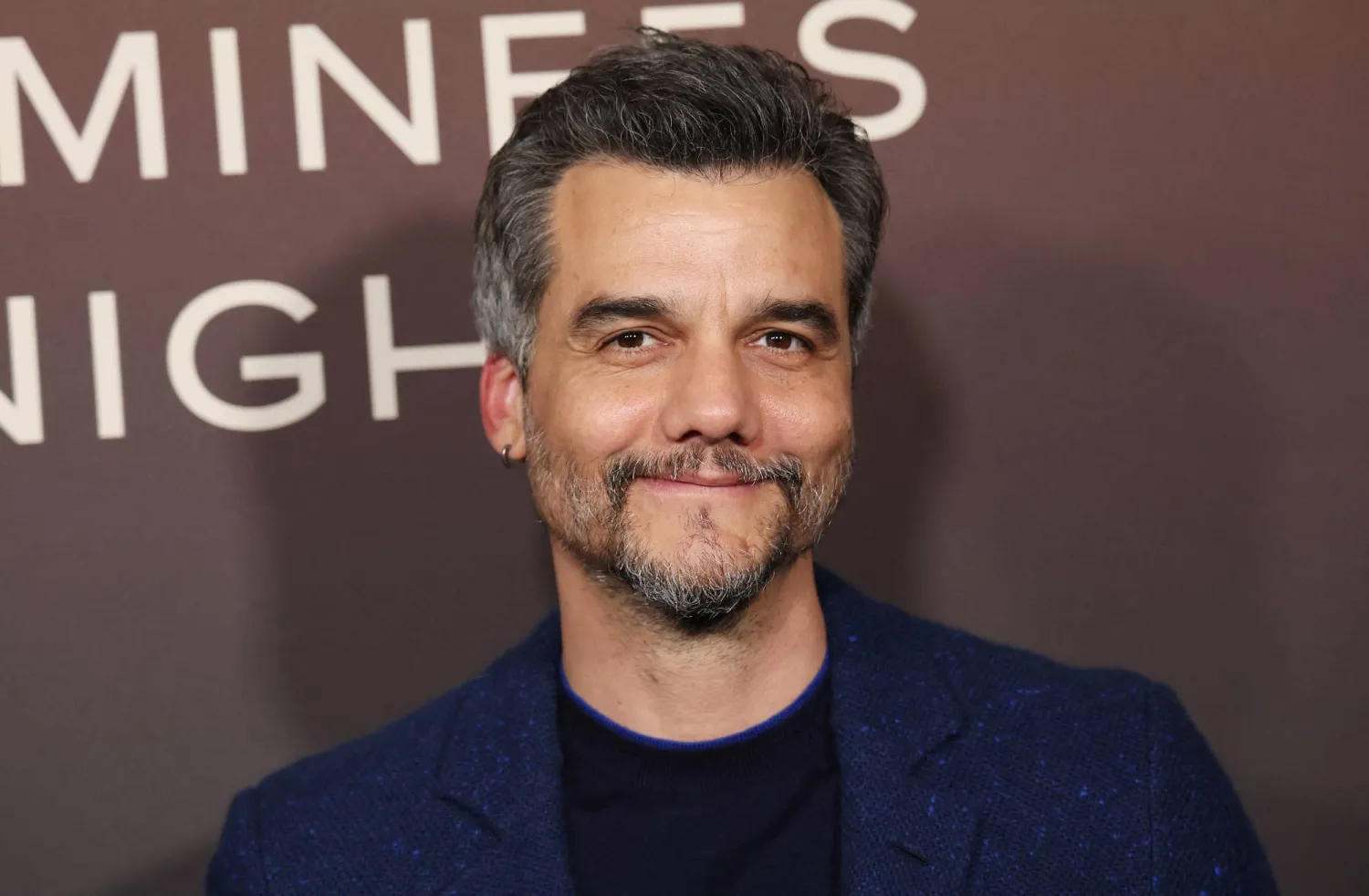A Colt .45 "Peacemaker" revolver, a symbol of the American Wild West, is at the center of actor Alec Baldwin's fight to avoid criminal prosecution for the 2021 fatal shooting of "Rust" cinematographer Halyna Hutchins on a New Mexico movie set.
Baldwin's 15-month battle with New Mexico state prosecutors is heading towards a July 10 climax when the actor is scheduled to face trial for involuntary manslaughter over Hollywood's first on-set shooting with a live-round in modern times.
The movie's weapons handler Hannah Gutierrez was sentenced to 18 months imprisonment on Monday for Hutchins' death. Baldwin's legal team is trying to have his indictment thrown out. His lawyers could seek a plea bargain if that fails.
But should the charge hold, Baldwin's trial is likely to focus on whether he pulled the trigger of his reproduction 1873 Colt .45 after he said he was directed - either by director Joel Souza or Hutchins - to point it at the cinematographer, according to different statements he made to the police and then to media.
Baldwin argues that Hutchins died due to a breakdown in film industry firearms safety protocol, which as an actor he was not responsible for. According to Reuters, he said it was not his job to inspect the gun and that he did not pull the trigger after Gutierrez mistakenly loaded a live round instead of an inert dummy.
Firearms and legal experts do not expect a Santa Fe, New Mexico, jury to necessarily see it that way.
In the Southwest United States, where gun ownership is routine, there is a cultural norm to check whether a weapon is loaded and never point it at someone and pull the trigger, according to Ashley Hlebinsky, executive director of the University of Wyoming Firearms Research Center.
Some local jurors may not differentiate between handling a gun on a movie set or in real life. Persuading jury members, especially gun owners, that the revolver went off on its own could be a hard sell, said the firearms historian.
Still, Hlebinsky sees a possible path to acquittal for Baldwin: namely, the argument his lawyers laid out in their motion to dismiss that the gun was modified to make it "easier to fire without pulling the trigger." That motion is now being considered by a judge.
"The defense just have to put doubt into the head of the jury," said Hlebinksy, who has acted as a firearms expert in court cases on single action Colt .45-type revolvers similar to the "Rust" weapon. "I think they can definitely do that."
CONFLICTING ACCOUNTS
It was six weeks after the Oct. 21, 2021 shooting that Baldwin said in an ABC News interview with George Stephanopoulos that he did not pull the trigger of the Italian-made gun.
Days later, the actor told a New Mexico workplace safety inspector that the Pietta reproduction Colt Single Action Army revolver had no mechanical defect.
Baldwin's statement that the gun "went off" on its own, and his comment that it worked properly, are part of New Mexico state prosecutor Kari Morrissey's assertion that the "30 Rock" actor has "lied with impunity" about details of the shooting.
"They're going to have to walk back from that statement a bit," trial lawyer Neama Rahmani said of Baldwin's legal team.
The former federal prosecutor expected the actor's lawyers to frame the incident as "an accidental discharge," a term meaning the gun fired due to mechanical failure.
He said it was an unusual though not unheard of legal position, most often employed in cases where a defendant was seeking to reduce a charge from murder to manslaughter.
According to Baldwin's lawyers, someone filed down the full-cock notch of the long Colt .45 after it was supplied brand new to the production, to make it easier to fire.
Lucien Haag, an independent gun expert hired by the state, testified at Gutierrez's trial that the full-cock notch was worn down and broken off by FBI testing, rather than filing.
FBI tests of the gun found it was in normal working condition when it arrived at their lab in Quantico, Virginia, after the shooting. An investigator had to hit the hammer with a mallet to make it fire without pulling the trigger, the blows damaging the hammer and trigger, according to the FBI.
Baldwin risks jeopardizing his credibility if he changes his story on the trigger, said lawyer Kate Mangels. She expected him to continue to blame others for firearm safety failures as prosecutors accuse him of negligence, both as an actor and the film's most powerful producer.
"At this juncture it would be difficult for Baldwin's defense team to change course," said Mangels, a partner at entertainment law firm Kinsella Holley Iser Kump Steinsapir.
Hlebinsky, the firearms expert, said movie-set armorers she knows, who have seen pictures of the hammer on Baldwin's gun, are uncertain whether the full cock notch was worn down by mallet blows or filing. She expected Baldwin's legal team to find a firearms expert to testify it was the latter.
"I don't think anyone can say 100% what happened," she said of the gun.
Alec Baldwin's Criminal Case Hinges on Wild West Revolver

An undated photo of the reproduction 1873 long Colt .45 Single Action Army revolver actor Alec Baldwin was using on the New Mexico set of western movie "Rust" in 2021. Santa Fe County Sheriff's Office/Handout via REUTERS.

Alec Baldwin's Criminal Case Hinges on Wild West Revolver

An undated photo of the reproduction 1873 long Colt .45 Single Action Army revolver actor Alec Baldwin was using on the New Mexico set of western movie "Rust" in 2021. Santa Fe County Sheriff's Office/Handout via REUTERS.
لم تشترك بعد
انشئ حساباً خاصاً بك لتحصل على أخبار مخصصة لك ولتتمتع بخاصية حفظ المقالات وتتلقى نشراتنا البريدية المتنوعة







